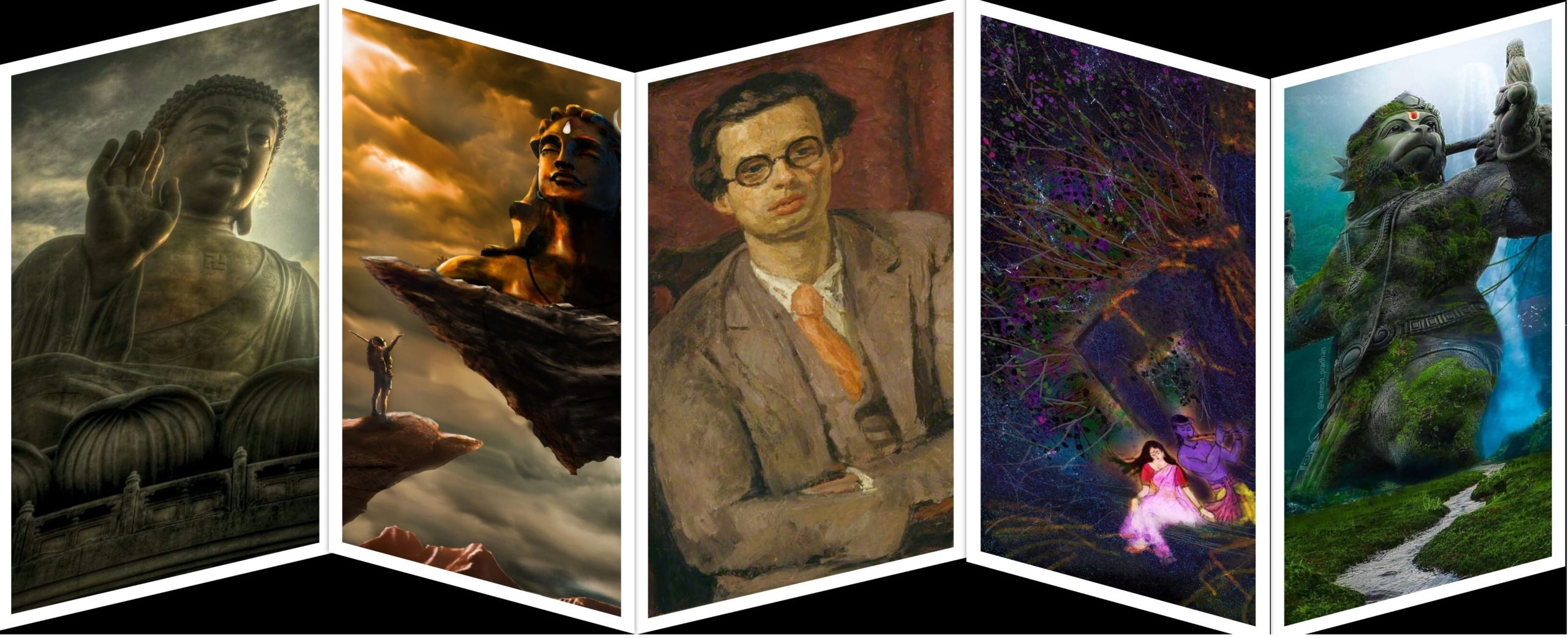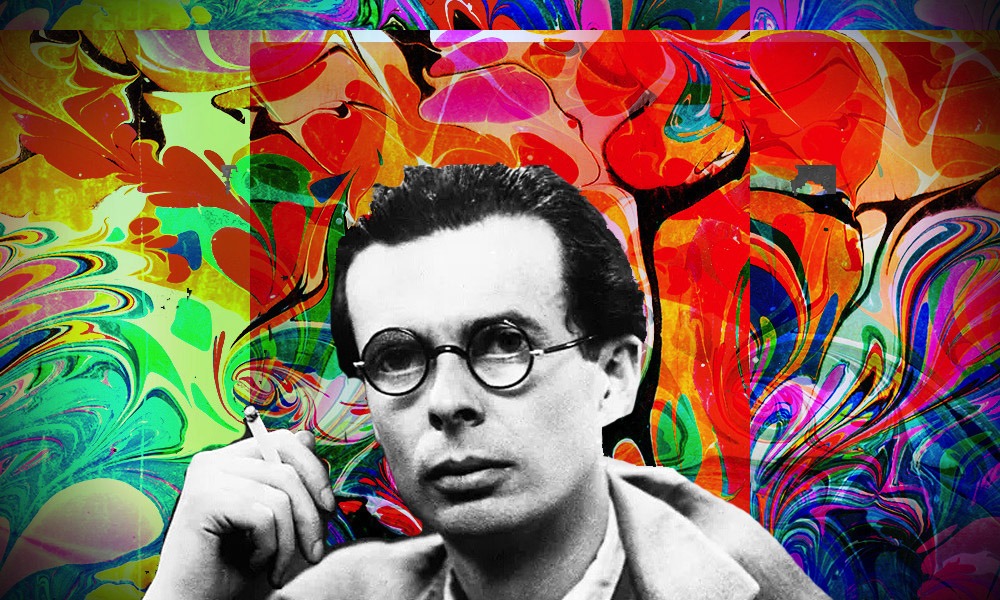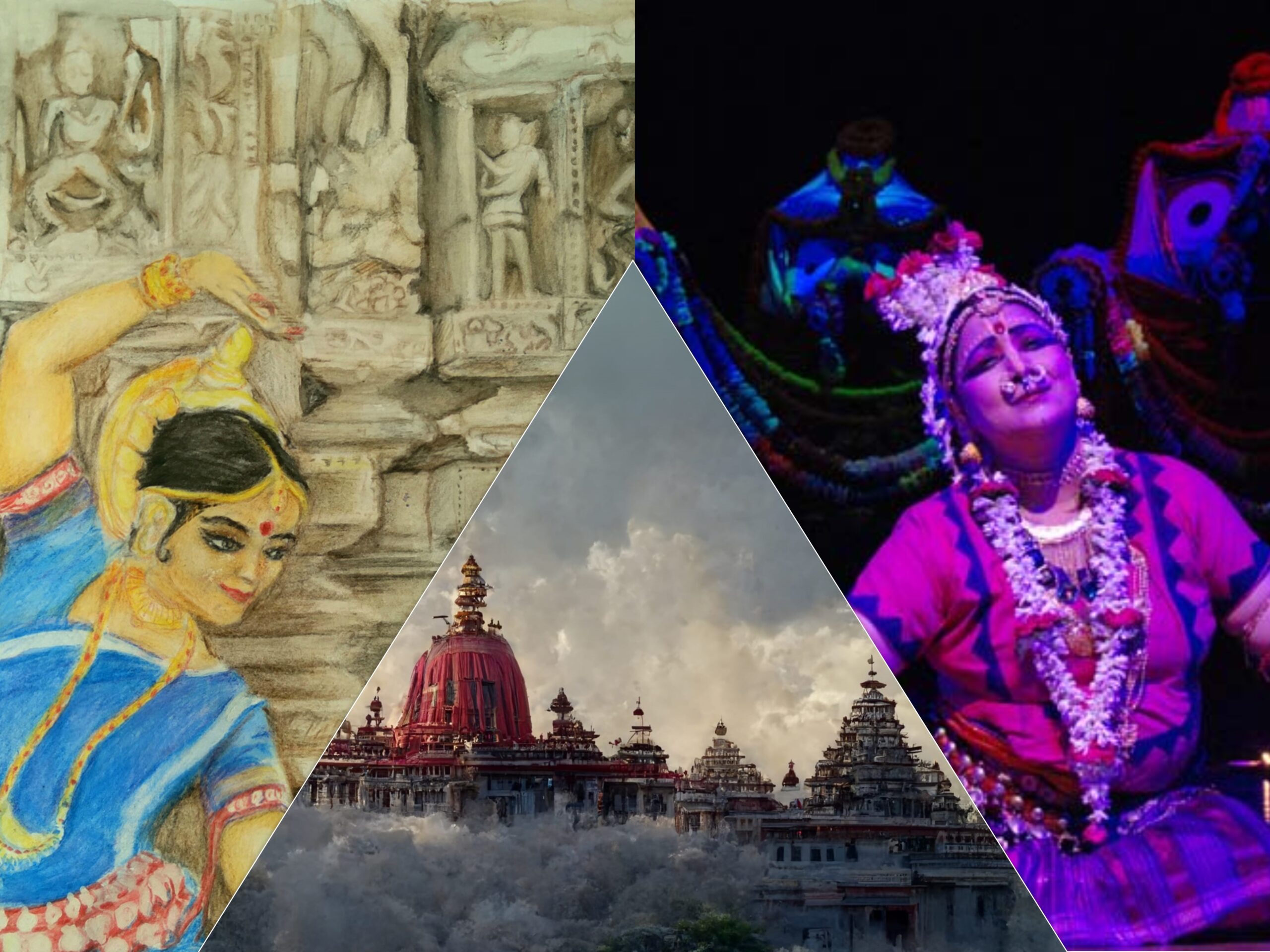- Visitor:276
- Published on:
Indian Influences in developing Aldous Huxley’s Thought: Part I
Aldous Huxley is one of those who enriched the West greatly with the wisdom of the East. Though he came late on the scene, his influence was nonetheless real and deep. Himself a great intellectual, he spoke to the intellect of the West its most effective medium of communication.

Aldous Huxley
Aldous Huxley is one of those who enriched the West greatly with the wisdom of the East. Though he came late on the scene, his influence was nonetheless real and deep. Himself a great intellectual, he spoke to the intellect of the West its most effective medium of communication. Huxley’s initial reaction to India was far from being warm. In fact, he started by rejecting its spirituality altogether and finding it no good to anyone and even to itself. During 1925-26, he visited India but left it quite dissatisfied. He landed at Bombay “hot, muggy and expensive” on 2nd October and left India in early February the following year, “rather glad to escape”. In Jesting Pilate, his travelogue, he says that “one is all for religion until one visits a really religious country”. But he does admit that there are some admirers of Indian ‘spirituality’, whose “admiration actually survives a visit to India”. Elaborating on the theme, he further says: “Admirers of India are unanimous in praising Hindu ‘spirituality’. I cannot agree with them. To my mind ‘spirituality’ is the primal curse of India and the cause of all her misfortune.” He felt that religion is a “luxury”, which India, at least, in its present condition, “cannot possibly afford”. He added that if he were an Indian millionaire, he would leave all his money for an “endowment of an Atheist Mission”. Perhaps discouraged by India’s material problems, he says that “Ford seems a greater man than Buddha”. Three years later, he repeats his rejection of Indian spirituality through a character in his novel Point Counter Point. “What a comfort it will be to be back in Europe again! And to think there was a time when I read books about Yoga and did breathing exercises and tried to persuade myself that I didn’t really exist! What a fool.” In due course, Huxley was more than reconciled to India’s spirituality, but physical or geographic India still disappointed him. He visited it briefly in 1961 at the invitation of the Tagore Centenary Celebration, and he found it “almost infinitely depressing”. During mid-twenties, Huxley put the word Indian “spirituality” under quotes to indicate that it was suspect in his eyes and that it needed being warned against. A decade had to pass before he adopted it himself and became its warm admirer and able exponent. The new influence radically changed his views on metaphysics and morality, on life and death, on man and his universe and his norms of conduct and excellence.

Rational World
What accounts for this transformation? It has to do with Huxley’s own deeper seeking. From his early youth he was a collector of “psychological varieties” (“the only things I have ever thought it worth while to collect”, he says in one of his essays in his Music At Night), world-views and life-views; he was also a critical analyzer and earnest explorer and seeker. He sought to find man’s place, purpose and significance in the universe. In this search, he passed through many terrains and reviewed many philosophies, paths and creeds. In this search, the first guidance came from the intellectual world in which he lived. This world subscribed to materialism in philosophy; it was positivist in outlook and relativist in morals. It was shaped by Rationalism of the 17th and 18th centuries as reinforced by evolutionary and historical theories of the late 19th century. Freud and Pavlov made important contributions. The net result was that the age denied God; it denied the “other world”; it denied any higher purpose and destiny for man. Not excellence or self-exceeding but Benthamite happiness was the Highest Good; not the heightening of the Consciousness to contact a higher order of reality but an adjustment with the sense-world was the admired, scientifically approved and sanctified goal or ideal. These movements provided powerful influences and they find eloquent formulation in Huxley’s writings of the early period. Their impact was reinforced by his own precocity and the stimulation he received from his immediate intellectual quarters. As a young man, he had occasions to spend considerable time at Garsington, six miles from, Oxford, at the Elizabethan manor, maintained by Lady Ottoline, wife of Philip Morrell, a liberal M.P. The place provided retreat and hospitality to many intellectuals and avant-gardists in moral fashions. It was here that Huxley first met Bertrand Russell, John Maynard Keynes, Lytton Strachey, D.H. Lawrence, T.S. Eliot and many others. It was here that Russell had his well-known affairs with Lady Ottoline. Sybille Bedford, Huxley’s biographer, tells us that the atmosphere of the place was permissive and “constancy and the loyalties of the heart were looked upon as philistine and a bit ridiculous”.

Indian Influence
Huxley’s earlier writings are powerfully coloured by the prevailing intellectual atmosphere. But increasingly he began to find them unsatisfying. The materialist philosophy denied the spiritual dimension; his growing mind refused to take it as the final explanation. He began to reject Freudianism and Behaviourism which made man’s mind a prisoner of its own lower powers. He felt that vague intimations of “another world” could not all be illusory. It was at this stage of his intellectual questioning and seeking that Indian philosophy and religion came to him. In a vague way, they were known to him already, but at this stage they came with a new impact. They opened up new vistas; in them he found answers to his intellectual and spiritual seeking. They provided not only answers but also a method, a praxis. They became interwoven with and part and parcel of his spiritual quest. Can one trace their course satisfactorily in his life? At what stage did he change from a rational truth-seeker to a seeker of the mystic truth and at what stage did this seeking take on a decidedly Indian turn? In short, when did he become a mystic, become an advaitin? Was the change accompanied by inner conflicts? Huxley provides no direct answer. He wrote no autobiography. He was reticent and he hated to speak about himself. Even his biography written by Sybille Bedford does not throw much light on this subject in this form. The biographer does give events in Huxley’s life in their chronological sequence, but she undertakes no specific study of HinduBuddhist influences as such on Huxley. However, this omission proves no great handicap. Huxley’s best life consisted in his thoughts and they are lucidly expressed in his novels, essays and letters. If we study them, we find in them an “increasing purpose”, a trend progressively expressing Hindu-Buddhist influences. Under these influences Huxley’s views on man’s most intimate concerns changed fundamentally. He began to look at the world through different eyes. His ideas on man, morals, life and death were transformed. The subject is large, but we shall take up some illustrations to make the point clear.
Love-making
Following the new usage of his time, Huxley’s early novels abound in philandering and love-making. He explores, mainly intellectually, sexuality in its various facets: committed and open-ended, dogmatic and experimental, prosaic and romantic, illicit and open, guilty and remorseless, critical and passionate. One does not know where his own sympathy lay for while describing the one he also knew the other. In one of his essays of the period, “Fashions in Love”, he brings out the relativity of love and says that love has its styles, schools and influences. But his aesthetic restraint makes him describe only a few of these fashions in his novels. Each school is an idea on legs; each offers its intellectual justification, the permissive often making a better case for itself. In his Those Barren Leaves, published in 1925, Huxley depicts the “love of the parallels”; different pairs make love on different terraces of a large villa, each in its own style, the more philosophical types using their philososphies, as birds use their plumage, to attract their mates. A moralist does not like the permissive atmosphere, but Mr. Cardan, a philosopher, counters that “everyone has his own favourite vice”. Another regards love-making as “the best indoor game”. His Brave New World, published in 1932, leans on Freudian wisdom and makes love-making free, plentiful and compulsory for its citizens in order to create a people who have no knots, no complexes, no emotional and spiritual conflicts, and, therefore, are happy and sociable, and docile and easily governed. In another novel, Point Counter Point, belonging to the same period, sexual exploration continues. But in his writings of the War and postWar period when he had come under the influence of Hindu-Buddhist tradition where brahmacharya (abstinence) holds a high position, there is less interest in the subject and it takes a different direction. Sexual encounters are retained but they belong to the mundane world, saMsâra as it were, and are depicted on the outer walls of the shrine and are kept out of the inner sanctum. In his Ends and Means, he came to regard chastity as a “necessary precondition to any kind of moral life superior to that of the animal”; he began to think of it as “one of the major virtues” for without it, “societies lack energy and individuals are condemned to perpetual unawareness, attachment and animality”. But he also distrusted it if it did not serve the major virtues of charity and intelligence. Associated with and in the service of a lower spiritual ideology, it became merely puritanism which was historically associated with “militarism and capitalism, with war and persecution and economic exploitation”. In Island, Huxley’s last novel published in 1962, we find that lovemaking does not cease but it is done under and as a spiritual discipline. It is done with awareness, and “awareness transfigures it, turns lovemaking into the Yoga of lovemaking.”
Meaninglessness
There was a phase when Huxley believed like so many other thinkers and philosophers of the day that the world was purely physical and had no spiritual dimension. He had no use for “airy assertions” about God and such like things. “God, we psychologists know, is a sensation in the pit of the stomach, hypostasised,” he said. Similarly, he held, in the same vein, that the “Other World” was merely an “invention of the human fancy”. It took him much time, influences of a very different kind and much self-reflection before he changed his views and concluded that the Other World was neither a human invention, nor other or alien but was one’s true home and shelter, but that these truths have to be discovered by each person for himself. This purely physical and chemical view of the world also gave birth to its own kind of sociology and ethics; it gave us a world which had no meaning, no significance, no morality, no value.2 “It is obvious, there are no moral laws; there are only social customs,” says one of Huxley’s characters. But his ideas changed radically when he embraced Upanishadic thought. In this new phase he asked the question again whether the world as a whole possesses the value and meaning we often attribute to certain parts of it (such as human beings and their works). And his answer is very different. He says that this is a “question which, a few years ago, I should not even have posed. For, like so many of my contemporaries, I took it for granted that there was no meaning.” He gives two reasons for holding this view. One was because he shared the common belief that the scientific picture of an abstraction from reality was a true picture of reality as a whole. But he also confesses to some “non-intellectual reasons”. He says he had “motives for not wanting the world to have a meaning”. Explaining these motives and these non-intellectual reasons a few pages away, he says that for himself, as no doubt, for most of his contemporaries, “the philosophy of meaninglessness was essentially an instrument of liberation”. They objected to morality because it “interfered with our sexual freedom”, he explains. He expounds that similar tactics were adopted during the eighteenth century and for the same reason when many thinkers went ‘philosophical’. They preached that people should be “free from prejudices – above all, prejudices of a sexual nature”.3 Now in the new phase, he came to regard the world as supremely good and meaningful and in the process of realizing it he became a regular mystic philosopher. The ultimate reality is “the peace of God which passeth all understanding”, he said and “goodness is the way by which it can be approached”. To realize that the world is good one had himself to be good. “Virtue (Buddhist Sîla or yama and niyama of the Pâtañjala Yoga) is the essential preliminary to the mystical experience,” he said.
To be continued…
Bibliography:
Swarup, Ram, 2000. Chapter 5 Development in Huxley’s Thought: Hindu-Buddhist Influences, On Hinduism Reviews and Reflections.
Center for Indic Studies is now on Telegram. For regular updates on Indic Varta, Indic Talks and Indic Courses at CIS, please subscribe to our telegram channel !
- 138 min read
- 0
- 0










